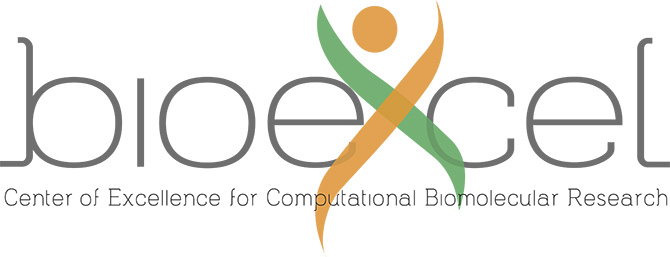Launch of BioExcel - Centre of Excellence for BioMolecular Research

The BioExcel project will be officially launched on the 1st of November 2015. The project is a collaboration between eleven European academic and industrial partners to develop a Centre of Excellence for Biomolecular Research. The centre will facilitate the use of high performance computing (HPC) and high-throughput computing (HTC) in biomolecular research, both in academia and industry. This is extremely important these days as research from the life sciences has a huge impact on many vital areas of our lives – from the development of new drugs and medical treatments to improving agricultural and food production techniques and even the development of innovative materials for use in many household and commercial items.
While life science research is having a greater impact on our lives, the underlying biomolecular research is becoming increasingly “digital” and relying more and more heavily on extremely computationally intensive simulations (that frequently involve managing enormous quantities of data too), rather than focusing solely on practical laboratory studies. Thus the number of people within the life science research community who are working with high-end computing is increasing and the demands on HPC/HTC infrastructures keep pushing the boundaries of the currently available software and hardware. Consequently, there is a growing need both for improvements in the efficiency of the software used for biomolecular modelling and for the software to be scaled up to run on larger and larger supercomputer systems. Yet we are also faced with a situation where many life science experts do not necessarily have sufficient HPC expertise to implement such developments themselves or even to make effective use of the existing software. There is an increasing need for biomolecular consultants with expertise both in HPC/HTC and the life sciences who can help academic and industrial researchers in these areas.
The BioExcel project will help solve some of these problems by making it easier for biomolecular researchers to use the available software and computational infrastructures by providing training and guidance on best practices, as well as developing optimal workflow tools. In addition the new centre will work on improving the performance, efficiency, and scalability of several software packages of high importance for biomolecular life science research (namely GROMACS , HADDOCK and CPMD ) on next-generation HPC systems.
BioExcel will be led by the PDC Center for High Performance Computing , which is based at the KTH Royal Institute of Technology in Stockholm. Researchers from the KTH Department of Theoretical Physics will also participate in the project along with academic and industrial research partners from Utrecht University (Netherlands), the Institute for Research in Biomedicine (IRB Barcelona) (Spain), the Jülich Research Centre (Germany), The University of Edinburgh (UK), The University of Manchester (UK), the European Molecular Biology Laboratory (Germany), the Max Planck Society with the Max Planck Institute for Biophysical Chemistry and the Max Planck Computing and Data Facility (Germany), Forward Technologies (Sweden), the Barcelona Supercomputing Center (Spain) and Ian Harrow Consulting in conjunction with the Pistoia Alliance (UK).
The project is funded for three years by the EC Horizon 2020 program, and is the only Centre of Excellence that focuses on the life sciences out of the eight that have been funded by this new initiative. Since demands for the services of the BioExcel Centre of Excellence are only likely to increase with time, the project is also dedicated to developing appropriate governance structures and a sustainable business plan so as to evolve into a sustainable centre that will continue to offer excellence in biomolecular research services for European industrial and academic researchers in the future.
For further information about BioExcel, please contact Erwin Laure ( erwinl@pdc.kth.se ) or Rossen Apostolov ( rossen@kth.se ).
